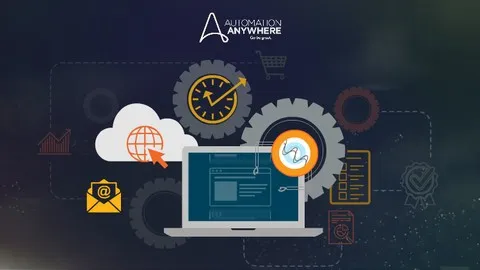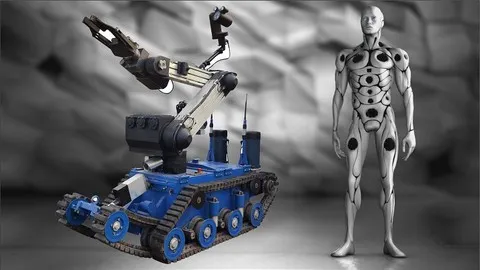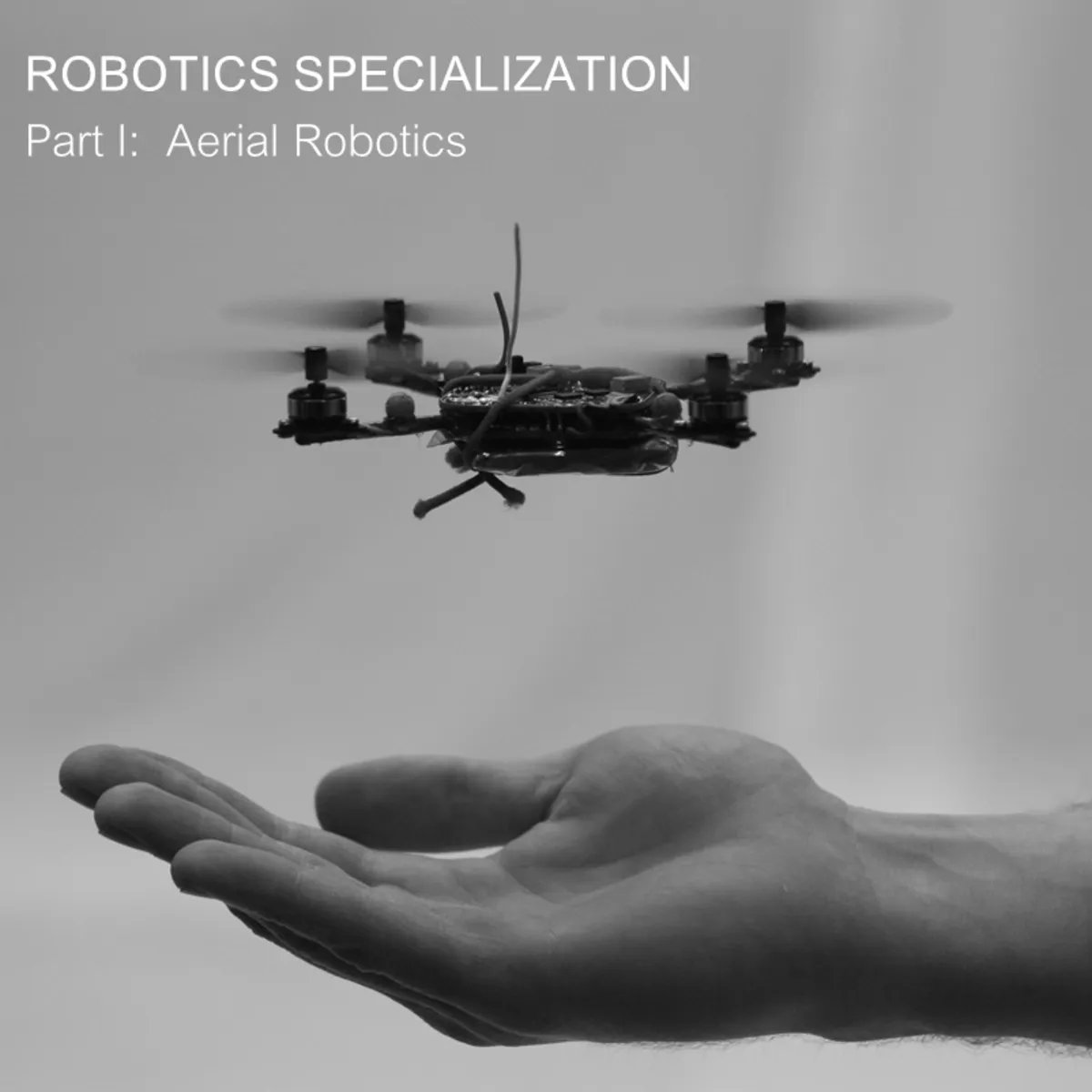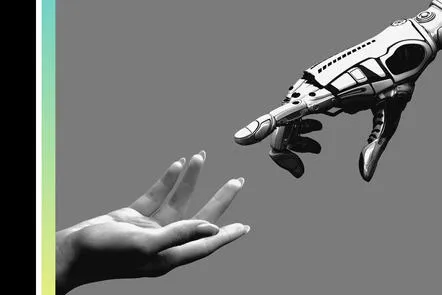
Beginners guide to RPA - Automation Anywhere 
This course is designed to provide a comprehensive introduction to RPA and Automation Anywhere Enterprise. You'll learn how to identify processes that can be automated, create software bots, and use the features of Automation Anywhere Enterprise to automate business activities. By the end of the course, you'll have the skills to build and deploy your own software robots. ▼
ADVERTISEMENT
Course Feature
![]() Cost:
Cost:
Free
![]() Provider:
Provider:
Udemy
![]() Certificate:
Certificate:
No Information
![]() Language:
Language:
English
![]() Start Date:
Start Date:
Self Paced
Course Overview
❗The content presented here is sourced directly from Udemy platform. For comprehensive course details, including enrollment information, simply click on the 'Go to class' link on our website.
Updated in [May 25th, 2023]
[Why to learn]
RPA is a rapidly growing technology that is transforming the way businesses operate. It enables organizations to automate mundane, repetitive tasks, freeing up employees to focus on more strategic and creative tasks. With Automation Anywhere Enterprise, you can quickly and easily create software robots that can automate any process, from simple data entry to complex workflows.
[Development Paths]
This course will provide you with the skills and knowledge needed to become an RPA expert. You will learn how to identify processes that can be automated, design and build software robots, and deploy them in a production environment. You will also gain an understanding of the Automation Anywhere Enterprise platform and its capabilities.
[Related Learning Suggestions]
This course is a great starting point for anyone interested in learning about RPA and Automation Anywhere Enterprise. To further your knowledge, you may want to consider taking courses on other RPA platforms, such as UiPath or Blue Prism. Additionally, you may want to explore courses on artificial intelligence, machine learning, and natural language processing, as these technologies are often used in conjunction with RPA.
[Applications]
At the end of this course, participants are encouraged to apply their newfound knowledge of RPA and Automation Anywhere Enterprise to their own projects. They should be able to identify business activities that can be automated and construct software bots to automate them. Additionally, they should be able to use the capabilities and functions of Automation Anywhere Enterprise to create and deploy bots.
[Career Paths]
1. Robotic Process Automation (RPA) Developer: RPA Developers are responsible for designing, developing, and deploying software robots to automate business processes. They must have a strong understanding of the Automation Anywhere platform and be able to create and maintain scripts that can be used to automate tasks. As the demand for automation increases, the need for RPA Developers is expected to grow significantly.
2. Automation Anywhere Consultant: Automation Anywhere Consultants are responsible for helping organizations identify and implement automation solutions. They must have a deep understanding of the Automation Anywhere platform and be able to provide guidance on how to best utilize the platform to achieve desired outcomes. As organizations continue to embrace automation, the demand for Automation Anywhere Consultants is expected to increase.
3. Automation Anywhere Architect: Automation Anywhere Architects are responsible for designing and implementing automation solutions. They must have a strong understanding of the Automation Anywhere platform and be able to create and maintain scripts that can be used to automate tasks. As organizations continue to embrace automation, the demand for Automation Anywhere Architects is expected to increase.
4. Automation Anywhere Trainer: Automation Anywhere Trainers are responsible for providing training and guidance to organizations on how to best utilize the Automation Anywhere platform. They must have a deep understanding of the Automation Anywhere platform and be able to provide guidance on how to best utilize the platform to achieve desired outcomes. As organizations continue to embrace automation, the demand for Automation Anywhere Trainers is expected to increase.
[Education Paths]
Recommended Degree Paths:
1. Bachelor of Science in Robotics: This degree program provides students with a comprehensive understanding of robotics technology, including the design, development, and implementation of robotic systems. Students learn about the fundamentals of robotics, including programming, control systems, and artificial intelligence. They also gain experience in the application of robotics in various industries, such as manufacturing, healthcare, and transportation. Additionally, students learn about the ethical and legal implications of robotics and automation.
2. Master of Science in Artificial Intelligence: This degree program provides students with a comprehensive understanding of artificial intelligence (AI) and its applications. Students learn about the fundamentals of AI, including machine learning, natural language processing, and computer vision. They also gain experience in the application of AI in various industries, such as healthcare, finance, and transportation. Additionally, students learn about the ethical and legal implications of AI and automation.
3. Bachelor of Science in Computer Science: This degree program provides students with a comprehensive understanding of computer science, including programming, algorithms, and data structures. Students learn about the fundamentals of computer science, including software engineering, operating systems, and computer networks. They also gain experience in the application of computer science in various industries, such as healthcare, finance, and transportation. Additionally, students learn about the ethical and legal implications of computer science and automation.
4. Master of Science in Automation and Robotics: This degree program provides students with a comprehensive understanding of automation and robotics technology, including the design, development, and implementation of robotic systems. Students learn about the fundamentals of automation and robotics, including programming, control systems, and artificial intelligence. They also gain experience in the application of automation and robotics in various industries, such as manufacturing, healthcare, and transportation. Additionally, students learn about the ethical and legal implications of automation and robotics.
Developing Trends:
1. Autonomous Robotics: Autonomous robotics is an emerging field of robotics that focuses on the development of robots that can operate independently without human intervention. Autonomous robots are being developed for a variety of applications, including manufacturing, healthcare, and transportation.
2. Machine Learning: Machine learning is an area of artificial intelligence that focuses on the development of algorithms that can learn from data and make predictions. Machine learning is being used in a variety of applications, including healthcare, finance, and transportation.
3. Natural Language Processing: Natural language processing is an area of artificial intelligence that focuses on the development of algorithms that can understand and process natural language. Natural language processing is being used in a variety of applications, including healthcare, finance, and transportation.
4. Computer Vision: Computer vision is an area of artificial intelligence that focuses on the development of algorithms that can recognize and interpret images. Computer vision is being used in a variety of applications, including healthcare, finance, and transportation.
Pros & Cons

Good content for basic learnings

Good introduction to RPA

Very good tutorial

Interesting material

Productive course content

Examples hard to follow

No hands on exercises

Case studies not comprehensive

Case studies not real world

No referal value for new learners
Course Provider

Provider Udemy's Stats at AZClass
Discussion and Reviews
0.0 (Based on 0 reviews)
Explore Similar Online Courses

Brand Partnership Strategy for Creatives

From Idea to Startup

Python for Informatics: Exploring Information

Social Network Analysis

Introduction to Systematic Review and Meta-Analysis

The Analytics Edge

DCO042 - Python For Informatics

Causal Diagrams: Draw Your Assumptions Before Your Conclusions

Whole genome sequencing of bacterial genomes - tools and applications

Robotic Drives & Physics: Robotics learn by building III

Robotics: Aerial Robotics

MedTech: AI and Medical Robots Course
 Related Categories
Related Categories
 Popular Providers
Popular Providers
Quiz
 Submitted Sucessfully
Submitted Sucessfully
1. What is RPA?
2. What is Automation Anywhere Enterprise?
3. What will you learn in this course?


Start your review of Beginners guide to RPA - Automation Anywhere